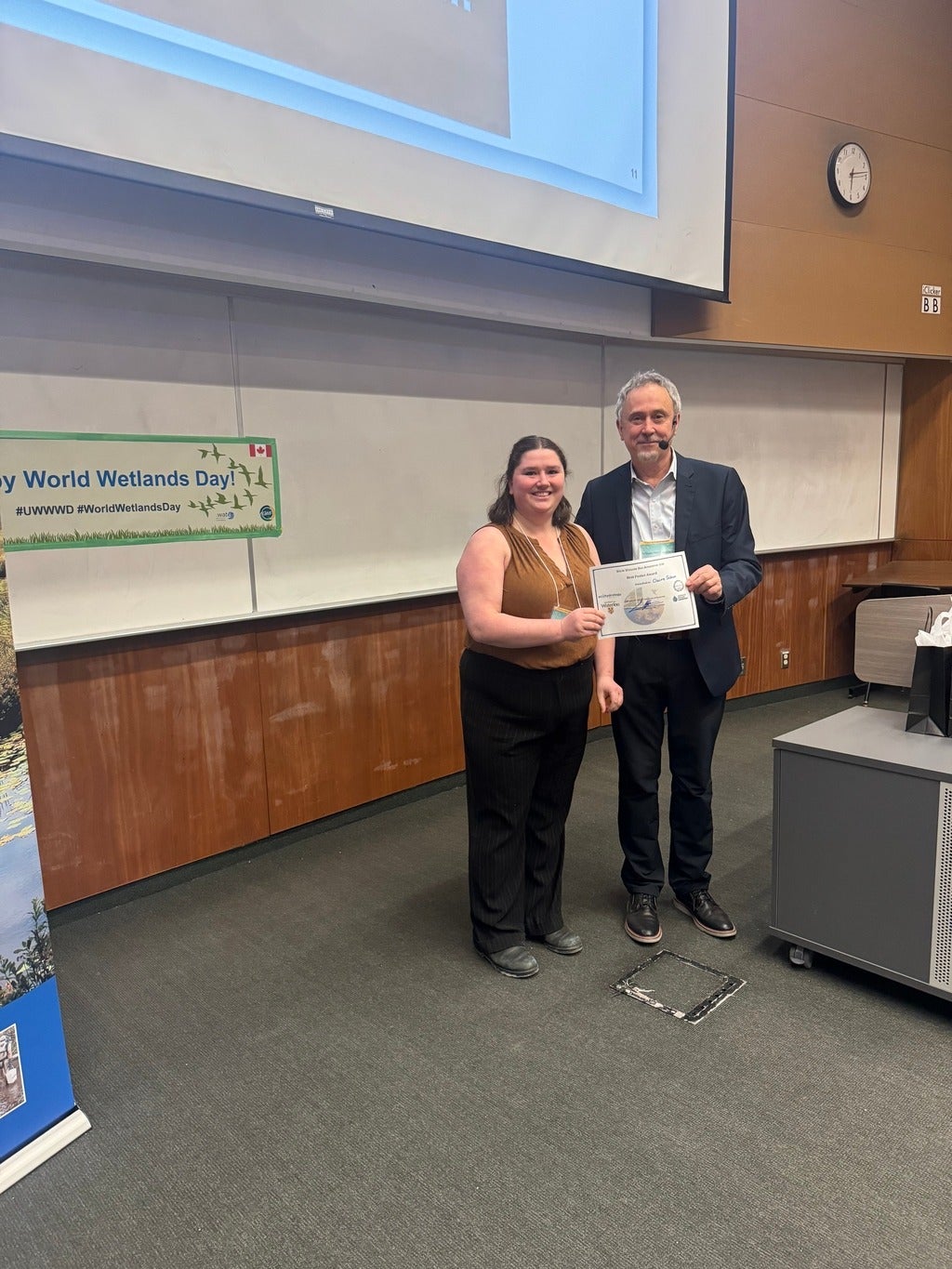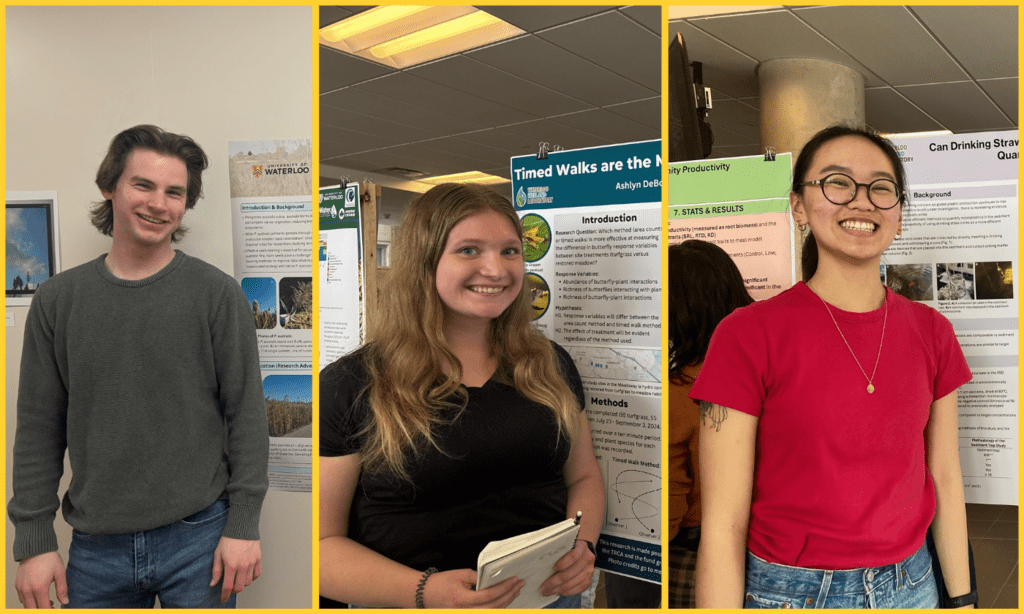WWL celebrates World Wetlands Day 2026
The Waterloo Wetland Lab had a great time celebrating World Wetlands Day 2026 at the event hosted by the Ecohydrology Research Group on campus.
Congratulations to Claire Schon who won the award for Best Graduate Student Poster, and congratulations to Kayla Martin for presenting her first poster based on her MSc research!







